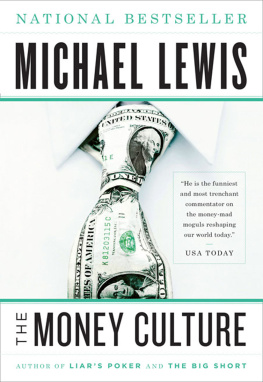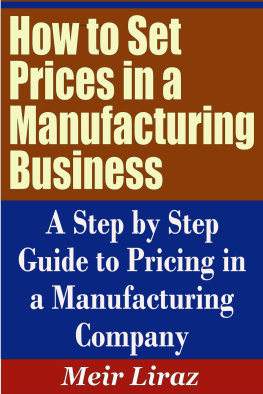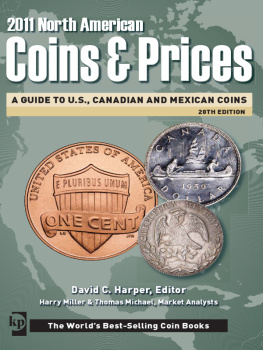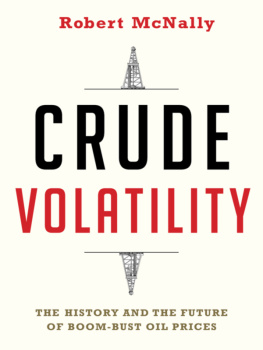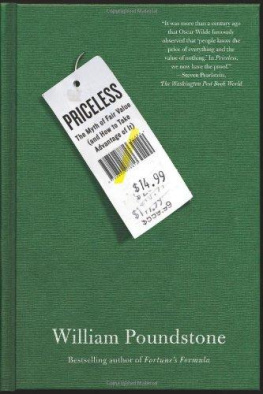Free Prices Now!: Fixing the Economy by Abolishing the Fed 2013 by AC2 Books. All rights reserved. Printed in the United States of America. No part of this book may be used or reproduced in any manner whatsoever without written permission except in the case of brief quotations used in critical articles and reviews.
1
Introduction
[Soviet] socialism collapsed because it did not tell the economic truth.
Oystein Dahle
W hy is the human race so poor? Why do billions still lack enough even to eat?
As this author noted in an earlier book, even a small sum of money, such as $10, if compounded at 3% over 1,000 years, would produce a sum equal to twice the worlds wealth today. It should be ridiculously easy, over time, to end human poverty. Why have we failed to do so?
Safety is certainly an important factor. No one will bring wealth out of hiding, much less invest it, if it is likely to be stolen. But protection from outright theft is not enough. We need an honest system of mutual exchange. A corrupt and dishonest economic system does not create wealth; it destroys it.
The most reliable barometer of economic honesty is to be found in prices. Honest prices, neither manipulated or controlled, provide both investors and consumers with reliable economic signals. They show, beyond any doubt, what is scarce, what is plentiful, where opportunities lie, and where they do not lie.
A corrupt economic system does not want honest prices, honest information, or honest results. The truth may be inconvenient or unprofitable for powerful government leaders or private interests allied with them. Typically, throughout human history, these leaders and special interests have sought to use their power to manipulate and control prices to their own advantage.
Much of the time, powerful price manipulators and controllers are accompanied and assisted by ideologists or theoreticians. These professional advisorsmodern day Magi, skilled verbally or in mathematicsconfidently argue that dishonest prices are really honest; honest prices are really dishonest; the resulting chaos is really order; and a future filled with jobs and plenty lies ahead with just a few more manipulations and controls. Sometimes the arguments are presented with calculated deceit, sometimes with muddled sincerity.
Can it really be this simple, that job growth and economic prosperity depend on allowing economic prices to tell the truth, free from the self-dealing and self-interested theories of powerful special interests? That is the central thesis of this book, and each chapter will explore it from an additional angle. What is needed to pull humanity out of dire poverty is a free price system, one that is neither manipulated nor controlled.
If prices are not free, an economic system cannot be expected to function properly. What happens thereafter will depend on the degree of price manipulation or control. If it is not extreme, the economy may limp along, impaired, not realizing its full potential, but not in overt crisis.
If the undermining of free prices is extreme enough, the system will visibly falter and may even collapse, as in 1929 or 2008. In this case, capital, jobs, and peoples lives are destroyed. Ironically, the crisis often leads to a government response which entails even more price manipulation and control, and which therefore guarantees even more trouble, if not immediately, then down the road.
A further irony of all this is that a large majority of professional economists, including those aligned on the political left as well as right, respond to surveys by indicating that they generally oppose government price controls. The problem is that most government price manipulations and controls are not advertised as such. They may be stealthy by design, or they may just take a form that is not easily recognized for what it is.
Throughout this book, one of its aims will be to unmask these misguided government actions and show that they are indeed price manipulations and controls. We will also try to explain why they are doing untold damage to the hopes and prospects of anyone who depends on the economy, especially the poor.
Are the Rich Necessary? Great Economic Arguments and How They Reflect Our Personal Values (Mt. Jackson, VA: Axios Press, 2009). Those readers may wish to review Part Two briefly or proceed directly to Part Three.
2
Why We Need Free Prices
I magine getting up one morning and discovering that there are no longer any prices. What complete chaos there would be, chaos that would soon lead to shortages, starvation, and social collapse! Without any prices, we would be back to a barter system, and the worlds present population could not even be fed, housed, or clothed by barter. Prices help us survive and thrive by enormously simplifying economic life. They do not tell us everything, but they tell us enough to make decisions.
Lets say that I am a tomato sauce producer. If the price of tomato sauce is higher than the price of the inputs (tomatoes, olive oil, spices, glass jars, labels, processing facilities, etc.), I will probably decide to make tomato sauce.
I do not know why these prices are what they are. Is it because demand is rising or falling? Or is it supply? I do not need to know in order to produce (or to consume). Prices lead me and other market participants to act in ways that balance demand and supply and, by doing so, to give people as much as possible of what they want.
What happens if the flow of information from prices is interrupted by government price manipulations or controls? If I am unaware of what is happening, I may make poor decisions. If I become aware of what is happening, I may become afraid to make any decisions at all. Either way my employees may lose their jobs or at least their raises.
During the 18th century, there were frequent bread shortages in France. This is when Queen Marie Antoinette is supposed to have exclaimed, when told that the peasants were starving from lack of bread, Why, let them eat cake! The French government was not much more sensible in dealing with the crisis. It placed price controls on bread, since scarcity was driving the price higher.
The intention was to make bread more affordable. The cost of growing wheat was also rising, however, so that the wheat farmers realized they would have to sell at a loss. Not surprisingly, they stopped planting, and the price of bread rose even higher.
Jacques Turgot, Controller-General of France, tried to introduce free price reforms. But government officials and allied business interestscrony capitalists, in todays terminologyquickly forced his resignation. This in turn sealed the fate of the regime, and eventually cost the monarch his life as well as that of his wife Marie Antoinette. In 1770, Turgot wrote that
[The French monarchy] fanc[ied] that it ensured abundance of grain by making the condition of the cultivator more uncertain and unhappy than that of all other citizens.
Governments have imposed outright price controls on goods for thousands of years. King Hammurabi literally carved prices in stone on a monument placed in ancient Babylon about four thousand years ago. As demand and supply shifted, one can only imagine the havoc caused by these legally mandated, never-changing prices.
The communist government that followed the Russian Revolution of 1917 faced a particularly troublesome decision about prices. Its leaders knew that they intended to abolish private property and private profits. In that case, what to do about prices? Should they be kept? It seemed unimaginable to abolish prices completely. But with private property and private property transactions outlawed, who would set prices and how would it be done?


